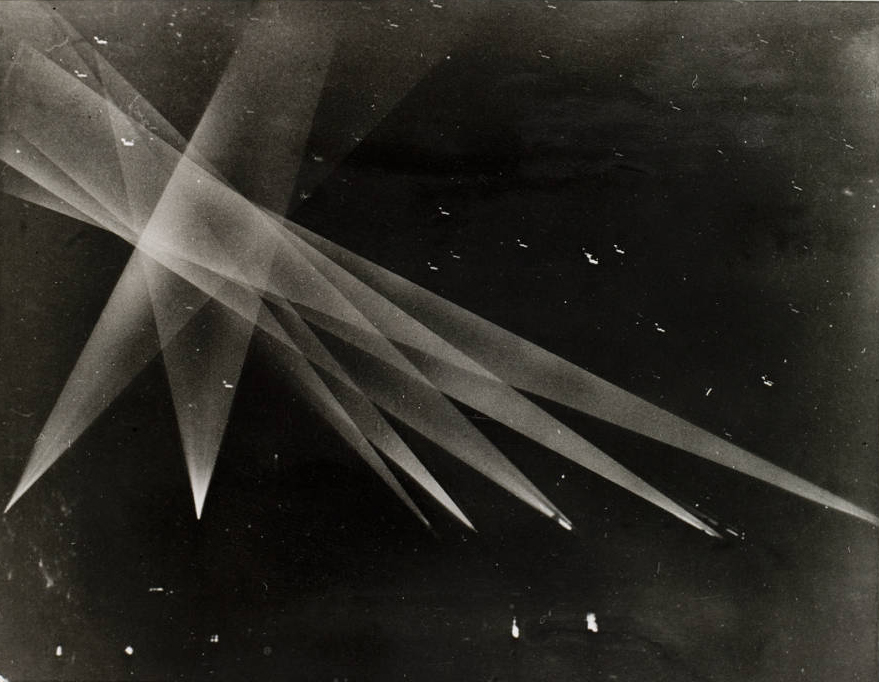An anti-aircraft gun fired over the ocean in Los Angeles on April 30, 1942. (Ira W. Guldner/A.P.)
The mysterious Battle of Los Angeles
It was only three months after the attack on Pearl Harbor, and the West Coast was gripped by fears that the Japanese would storm the beaches at any moment.
Then, on Feb. 24, 1942, an alarm was issued: Something strange had been spotted over the skies of Los Angeles.
A total blackout was ordered. As day turned to night, reports became hopelessly varied, with a coast artillery colonel reporting about 25 planes overhead. At around 3 a.m., antiaircraft batteries unleashed a barrage of ammunition that, the L.A. Times reported, “erupted like a volcano.”
Chaos ensued. Friendly fire became confused with enemy fire, and foreign planes were reported to number anywhere from one to several hundred.

Los Angeles Examiner/USC Digital Library
By the time dawn cast its light across the city, some 1,440 rounds of ammunition had been rocketed into the skies. Yet not a single bomb had been dropped. The death toll? Five — three from car accidents and two from heart attacks.
The Battle of Los Angeles, as it became known, was a false alarm, the Navy quickly acknowledged. The Army, however, wasn’t so sure, suggesting that at least one enemy plane had entered California airspace that night.
The conflicting explanations gave way to a series of conspiracy theories. One that persists to this day: that we indeed had a visitor that night, but it wasn’t the Japanese; it was aliens.
After the war, Japan confirmed that it had never flown an aircraft over Los Angeles during the war. In 1983, the U.S. Office of Air Force History issued its final word on the matter. A careful study of the evidence, it concluded, suggested the whole thing had been set off by weather balloons.
This article is from the California Sun, a newsletter that delivers must-read stories to your inbox each morning .Sign up here.
Get your daily dose of the Golden State.